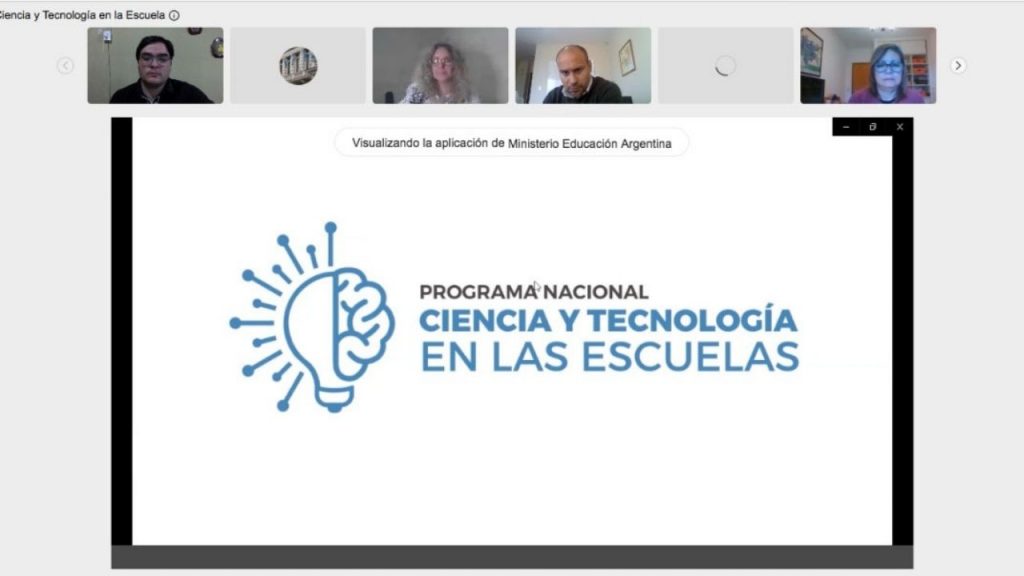The Ministry of Education, through the Secretariat for Educational Planning led by Gustavo Soto, has partnered with the national authorities in the launch of the National Program for Science and Technology in Schools. This program covers the elementary, primary, and secondary levels, content creation, teacher training, new classroom spaces, and educational equipment.
At the national level, the program was launched in the presence of the Minister of Education of the Nation, Nicholas Trotta, along with his counterpart in Science, Technology and Innovation, Roberto Salvareza; Minister of Education Marisa Diaz; Conicet President, Anna Maria Franchi; Director of the National Institute of Technological Education, Diego Golombic; with provincial representatives.
“It is expected to invest 1.4 billion to equip educational institutions with these scientific and technological tools, and more than 6 billion pesos for 2022 and 2023 to develop this national programme,” Trotta said.
Regarding the programme, he highlighted: “Argentina intends to walk the path of development, creating greater employment opportunities. Therefore, these initiatives are transformations for the future. We have the challenge that the school has all the tools to build opportunities for every girl and every boy” .
Secretary Gustavo Soto commented that Catamarca will be incorporated into the program which also proposes “a review of the curricular contents to be carried out by an advisory committee of scholars, scientists, educators and teaching professionals. In this way, the gradual modification of the technological education space by computer sciences at all levels will be proposed. Compulsory education so that by 2023 it becomes a compulsory curricular space.” A heavy emphasis will also be placed on initial and continuing teacher training, with emphasis on science training.
In addition, within the framework of the National Program for Science and Technology in Schools, the creation of regional technology centers has begun throughout the country, with the aim of training in new technologies and local centers of technological resources to support schools.
Similarly, it is thought to create “180 content” for the project, which proposes activities divided into 3 themes: logical-mathematical problems, simple experiments and stories about science and technology. At the same time, with a view to ensuring an adequate workload of the natural sciences at the primary school and at the initial level, didactic guides with experiential content and materials for their implementation will be developed; In addition, incoming and outgoing high school student pathways for those students with outstanding subjects (with a focus on the area of mathematics) will be enhanced.
National virtual courses will also be developed in strategic areas and self-help courses for the entire population, starting with the following topics: artificial intelligence and data science, climate change, biotechnologies and molecular medicine, and food science. Finally, there will be incentives for extracurricular activities in science and technology, science fairs and Olympiads, advances in science tourism, school science camps, ideas clubs, etc.

“Social media evangelist. Student. Reader. Troublemaker. Typical introvert.”

:quality(85)/cloudfront-us-east-1.images.arcpublishing.com/infobae/TEQF6EONZRFGLLLDIDD4L2O4EE.jpg)

:quality(75)/cloudfront-us-east-1.images.arcpublishing.com/elcomercio/XU32LRAEZFDDPNVHLFU3CKVBYY.jpg)



More Stories
Venezuela ranks fourth in female leadership in science and technology in Latin America
In Portuguesa and Sucre they explore the wonderful world of science
The university court overturns the expulsion of two teachers and a chemical sciences student